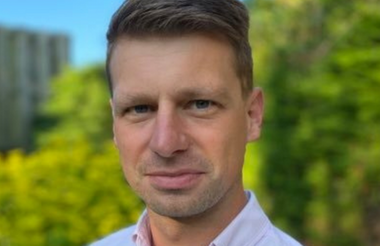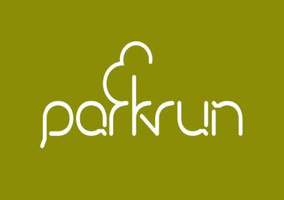Russ Jefferys’ first year leading Parkrun Global has seen the charity face scrutiny over its governance and culture, with internal reports of the organisation operating as a “boys club” under its previous leadership being made public.
Parkrun also reported itself to the Charity Commission last year after Jeffery’s predecessor Nick Pearson received thousands in undeclared payments from a third-party supplier.
And earlier this year, the charity’s appointment of former Sun editor David Dinsmore as a trustee caused a backlash from supporters and led to his resignation.
Jefferys, who had worked in the charity’s communications team for seven years previously, says his first year as chief executive has been “interesting” but feels the charity is in better shape now as it aims to double in size over the next five years.
‘Parkrun’s founder and I don’t always agree’
In a “collective decision” as part of Jeffery’s review of Parkrun’s governance, Paul Sinton-Hewitt moved from the charity’s board to a paid executive director role last year.
Asked whether it feels strange having the charity’s founder reporting to him, Jefferys says the pair respect each other’s positions.
“Paul has quite a wide-ranging brief which includes working with commercial partners, with our event teams and volunteers, exploring technology solutions, and ultimately ensuring that the organisation is living by its values and purpose and that the event experience is as close as possible to that very first event that he established at Bushy Park in 2004,” says Jefferys.
“I think it’s one of Paul’s great strengths, actually, that he had the awareness and felt able to pass on the leadership baton back in 2015. And being the founder of anything is obviously a unique position within an organisation.
“But personally, I think it’s a huge positive to have Paul as a part of the senior team, I greatly value his opinion and experience. And obviously, we don’t always agree, but that’s probably a good thing. But we respect each other’s position. And we both understand that ultimately, I’m responsible for the day to day running of the charity.”
Expansion plans
Parkrun published its five-year strategy last month, which included an aim to double in size during that period.
That is, double the number of events globally (from 2,200 to 4,400), and double the number of weekly participants (from 250,000 to 500,000).
In financial terms, Jefferys said this means Parkrun’s global revenue will increase to around £20m in five years.
The charity’s income has risen in recent years, with £5.6m recorded in the year to January 2022, £7m in 2022-23 (Jefferys says) and just under £10m forecast for the current financial year.
Jefferys says the charity will also be hiring more staff, potentially including an investment in fundraising personnel. Parkrun’s strategy sets out an aim to establish itself “as a fundraising charity and launching new fundraising products such as regular giving, direct donations and legacy donations”.
“We must always look for ways to be as efficient as possible but the fact is that with more revenue, we can do more. And if we’re going to be twice the size in five years’ time, we’ll need significantly more revenue, and more staff,” he says.
“Global revenue will be close to £10m this year and current global headcount is 54. Impact is more important to me than numbers, but of course they are inextricably linked. I think it’s reasonable to assume that both revenue and headcount will more than double over the next five years.”
‘We’ve been sensitive about being a charity’
Another area in which Parkrun plans to improve is its communications, which Jefferys led until the beginning of last year.
Its strategy says: “Parkrun has not previously successfully communicated its role or purpose. Many parkrunners and the wider public don’t understand our charitable objectives, how parkrun is funded, or how the funds we generate are used.”
Asked whether the charity made mistakes in this area previously, Jefferys says the charity now aims to more clearly articulate how it operates, particularly with its event participants.
Parkrun’s network of events are run by local communities, which is a “great strength” of how it operates, but this might mean people are unaware of the central charity’s role.
“People turn up, they take part, and they don’t necessarily realise that they are one of 250,000 people simultaneously taking 2,000 events around the world every weekend,” he says.
“So, it’s not a case that mistakes have been made, I just think we haven’t properly articulated how that central organisation works. Perhaps it didn't feel like a priority previously.
“And we’ve always been sensitive, I think, about being a charity and cautious when it comes to discussing fundraising. And I think that’s in part because we always wanted to ensure that there’s never any confusion about the fact that participating at Parkrun is free of charge, and always will be.
“But of course, there's a cost to ensuring the safe delivery of 100,000 events a year, which is what we're currently achieving. And that's the bit that we’re looking to improve.”
‘Culture doesn’t change overnight’
The report into Parkrun’s culture, as revealed by Third Sector last year, found a “widely held view” among staff that the charity’s former leadership team had operated like “a ‘boys’ club’ accessible only to a few”.
Jefferys says changing the charity’s culture had been a “major focus” of his first year in charge and that he hoped staff would now have a different view of its leadership.
“It’s obviously not something that changes overnight. But I don't think there’s any doubt that it looks and feels like a very different organisation now,” he says.
“You probably have to speak to others to see whether it feels different from a staff perspective, but I would certainly hope that that’s what people think. But it’s something that we’ll continue to work on.”
The charity has just appointed its first diversity, equity and inclusion leader, but Jefferys says he feels the organisation has more work to do in that area.
“I think there's a tendency, perhaps, for some organisations to think that you can appoint someone into that position and then it’s job done, box ticked. But I think it’s more complicated than that and it goes deeper than that. So, I’m looking forward to, to working with that individual to see what we can do across Parkrun to promote greater diversity.”
Jefferys says he feels responsible for making Parkrun a more diverse charity and that he aims to make its events more accessible to participants.
“Those of us in leadership positions have got a responsibility to work hard to try and break down some of those barriers. And I think that that fits quite nicely with who we are as an organisation.
“If we’re about removing barriers to participation at events, and removing barriers to the delivery of events, which is what we’re all about, then we need to be looking at removing barriers to participation from an employment perspective.”
Related articles











